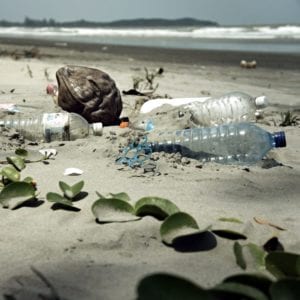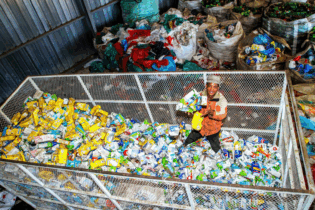Global environmental organisation Ocean Conservancy announced on 30 September the international launch of “Stemming the Tide: Land-based strategies for a plastic-free ocean” – a solutions-oriented report in partnership with the McKinsey Center for Business and Environment. The report outlines specific land-based solutions for plastic waste in the ocean, starting with the elimination of plastic waste leakage in five priority countries: China, Indonesia, Philippines, Vietnam and Thailand.
“Today’s report, for the first time, outlines a specific path forward for the reduction, and ultimate elimination, of plastic waste in the oceans,” said Andreas Merkl, Ocean Conservancy, CEO. “The report’s findings confirm what many have long thought – that ocean plastic solutions actually begin on land. It will take a coordinated effort of industry, NGOs and government to solve this growing economic and environmental problem.” Collaborating for better science The report is a signature initiative of the Trash Free Seas Alliance, an effort of Ocean Conservancy to unite industry, science and conservation leaders who share a common goal for a healthy ocean free of trash. The report was made possible through the support of numerous partners, including the Recycling and Economic Development Initiative of South Africa (REDISA), The Dow Chemical Company, The Coca-Cola Company, the American Chemistry Council and World Wildlife Fund, as well as the following funders: Adessium Foundation, 11th Hour Racing, Hollomon Price Foundation, Forrest C. & Frances H. Lattner Foundation and Mariposa Foundation. Statistical outcomesEight million metric tonnes of plastic leak into the world’s ocean every year and the amounts continue to grow. Without concerted global action, there could be one ton of plastic for every three tons of fish by 2025, leading to massive environmental, economic and health issues. With at least 80% of ocean plastic originating from land-based sources, the report’s findings propose a four-point solution to cutting leakage by 45% in the next 10 years, dramatically reducing ocean plastic waste by 2025 with the ultimate goal of eradicating the issue by 2035.
The report estimates that total costs for implementing these solutions could be contained at USD5-billion a year, with significant returns to the global economy. The report underscores that the next 10 years will be critical to effectively solve the problem of ocean plastic – a problem that is not just local, but global in nature. To achieve success, the report calls for a concerted global response driven by an international coalition of companies, governments and NGOs that will catalyse commitments from political leadership, provide local “proofs of concept,” provide waste management technology support and prioritize the ocean plastic waste issue as part of the global policy agenda on the ocean and the environment. To read the full report, visit: www.oceanconservancy.org/stemmingthetide






